HS8
2-way bass-reflex bi-amplified nearfield studio monitor with 8″ cone woofer and 1″ dome tweeter.
- 2-way bass-reflex bi-amplified nearfield studio monitor with 8″ cone woofer and 1″ dome tweeter
- 38Hz – 30kHz (-10dB), 47Hz – 24kHz (-3dB) frequency response
- 75W LF plus 45W HF bi-amp system for high-performance 120W power amplification
- ROOM CONTROL and HIGH TRIM response controls
- XLR and TRS phone jack inputs accept balanced or unbalanced signals
- Packaging single
Description
TIME FOR A REALITY CHECK
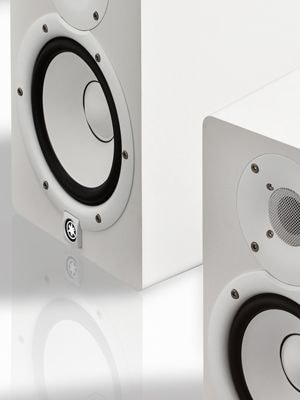
Ever since the 1970’s the iconic white woofer and signature sound of Yamaha’s nearfield reference monitors have become a genuine industry standard for a reason – their accuracy. Unlike studio monitors with added bass or treble frequencies which may sound more flattering at first, HS Series speakers were designed to give you the most honest, precise reference possible, providing an ideal sonic platform to build on throughout the mixing process. By combining acquired knowledge and expertise with state-of-the-art sound technologies, Yamaha’s speaker engineering team have examined, then optimized, every aspect that has contributed to making these monitors the most trusted in the business. The second generation HS Series also adds a new 6.5″ model to the lineup, bringing its exceptional accuracy to an even greater variety of recording environments.
Sound Philosophy of HS Series Studio Monitors
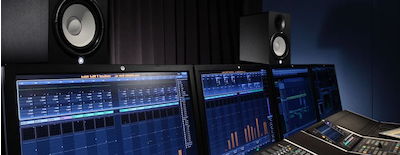
When selecting studio reference monitors for mixing and music production, one consideration takes precedence above all others – accuracy.
Beginning with the legendary NS-10M, and continuing with the MSP and previous HS Series, this new lineup shares a design philosophy that emphasizes sonic purity without any coloring or alternation of the original sound. While many manufacturers seek to enhance the sound of their monitors to make them sound impressive, Yamaha studio monitors are designed to achieve the best possible mix by ensuring that the sound from your speakers is true to the original. HS Series nearfield reference monitors are the embodiment of this philosophy, delivering a concise sound image, high resolution, and flat response.
Highly efficient Transducers
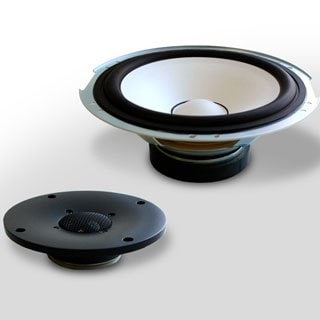
The HS Series features newly developed transducers that achieve astonishingly smooth response over a wide range of bandwidth. These transducers utilize an advanced magnetic field design that regulates the flow of magnetic response to provide seamless, natural sonic transitions. Each component’s materials and design were carefully re-examined, then optimized, to drastically improve the accuracy of signal reproduction throughout the audio spectrum.
– Tweeter
The HS Series features a newly designed, highly efficient 1″ dome tweeter that extends the usable frequency range considerably and delivers superb high-resolution sound. Utilizing a thick wave guide designed to minimize vibration the new tweeter is able to deliver smooth, distortion-free high end up to 30 kHz.
– Woofer
With newly designed, ultra-responsive woofers that utilize large, carefully selected magnets, HS Series monitors produce low distortion sound with a well-defined bottom end at any output level. All of the components in these high-power woofers, including the woofer ring and the basket further contribute to the HS Series’ stunning bass while providing clear, accurate mids.
High Performance Amp Unit
HS Series speakers employ an amplifier unit perfectly matched to the transducers utilized in each model of the series. Featuring a bi-amp design with a separate dedicated amp for both the woofer and the tweeter, this amplifier unit ensures that each HS Series speaker consistently delivers high-resolution sound with exceptionally flat response across the sound spectrum.
Low Resonance Enclosure Design
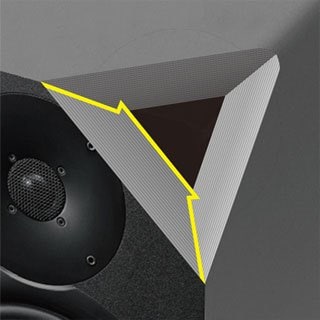
HS Series cabinets are designed to eliminate unwanted resonance and increase the accuracy of sound reproduction to their extreme limit. The enclosures are constructed from a very dense and resilient MDF with a damped acoustic response that is perfectly suited for reference monitors. Drawing from Yamaha’s over 100 years of piano design experience, HS Series engineers also employed a traditional three-way mitered-joint technique. Common to architectural design this construction firmly anchors the corners of the enclosure to dramatically improve durability and eliminate unwanted resonance that can influence overall sound.
Cutting Edge Noise Reduction Technology
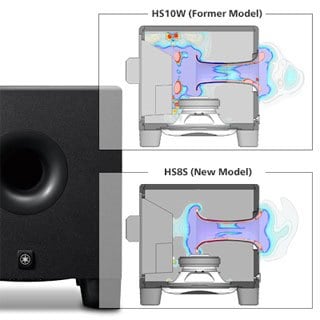
Speaker port design can greatly influence the clarity of overall sound. Often a vortex at the either end of the port can generate air vibrations inside of the port, causing unwanted noise. By adopting an advanced noise reduction technology that incorporates a thorough analysis of a visual representation of the sound, Yamaha’s engineers are able to control and reduce the vortex. Through this in-depth analysis we have arrived at the ideal port design, resulting in a reduction of audible noise up to 6dB. The utilization of this state-of-the-art technology allows HS Series studio monitors to meet the demands of more strict professional production environments.
Controls and Connectivity
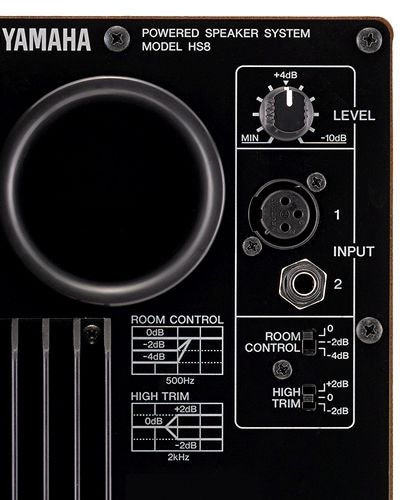
HS Series full-range models feature two response controls with detailed settings that allow them to adapt to the surface acoustics of rooms of varying shape and size. ROOM CONTROL allows you to attenuate the unnatural, exaggerated low-end that can often occur when speakers are placed next to walls, while HIGH TRIM allows for more flexible control of high frequency response. For inputs, HS full-range speakers can accommodate a wide range of balanced and unbalanced sources such as mixers, keyboards and audio interfaces with XLR and TRS phone jacks. With the HS8S subwoofer, HIGH CUT control sets the cutoff frequency of subwoofer output high-frequency attenuation from 80Hz to 120Hz, while PHASE switch adjusts the phase of the subwoofer output. The LOW CUT switch and LOW CUT controls enables attenuation of low frequencies for output between 80Hz and 120Hz. The HS8S subwoofer is equipped with XLR and TRS phone jack for inputs and XLR for outputs.
Flexible Set up (HS-I only)
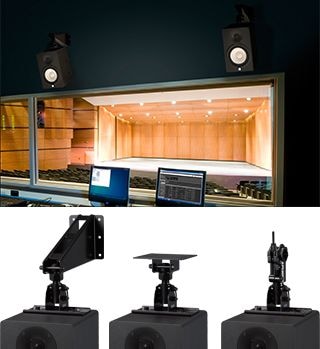
By adding mounting points and to the HS, HS-I models are compatible with three optional bracket types—wall, ceiling, and baton—adding the flexibility needed to meet the demands of a broad range of sonic environments.

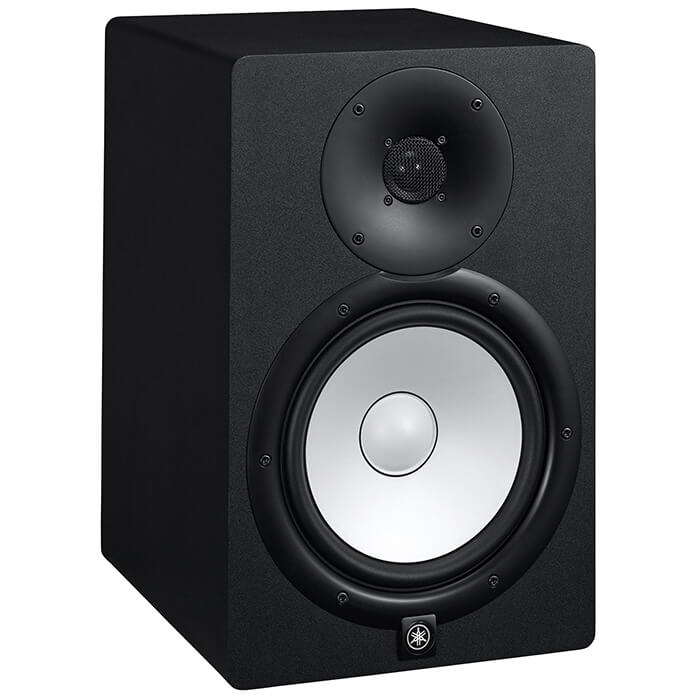
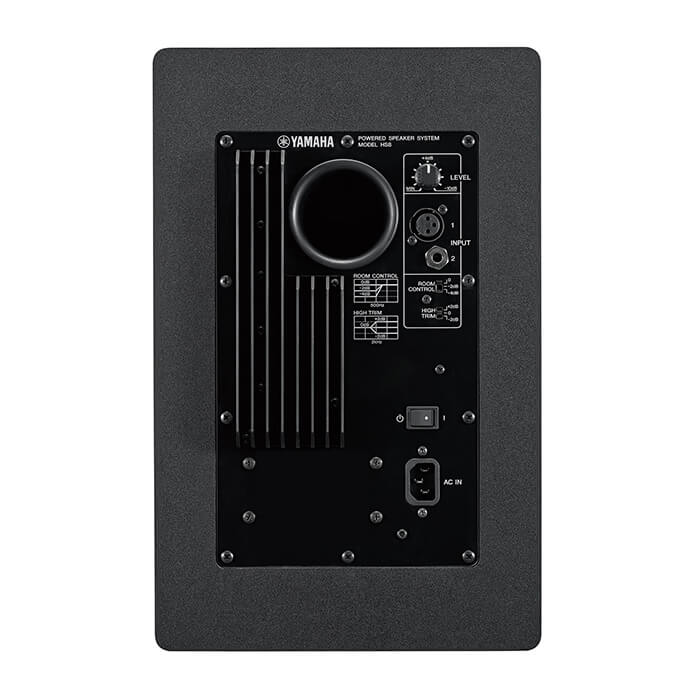
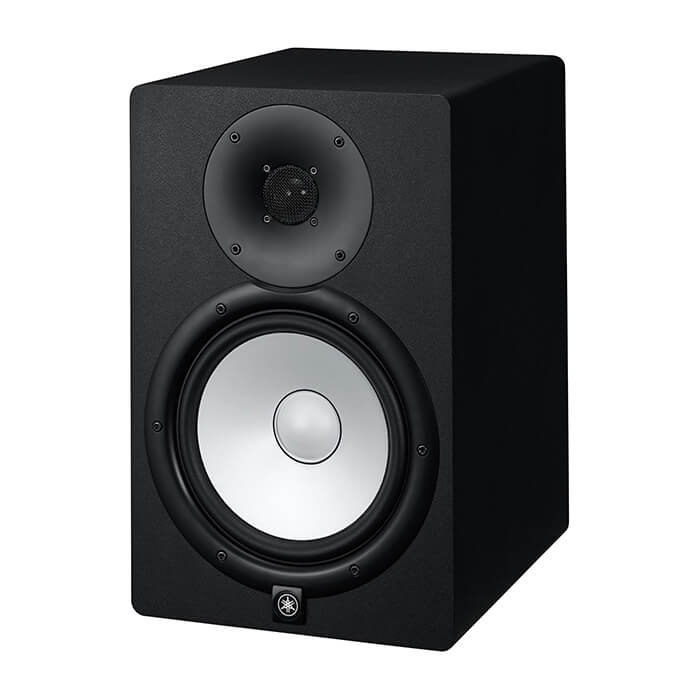
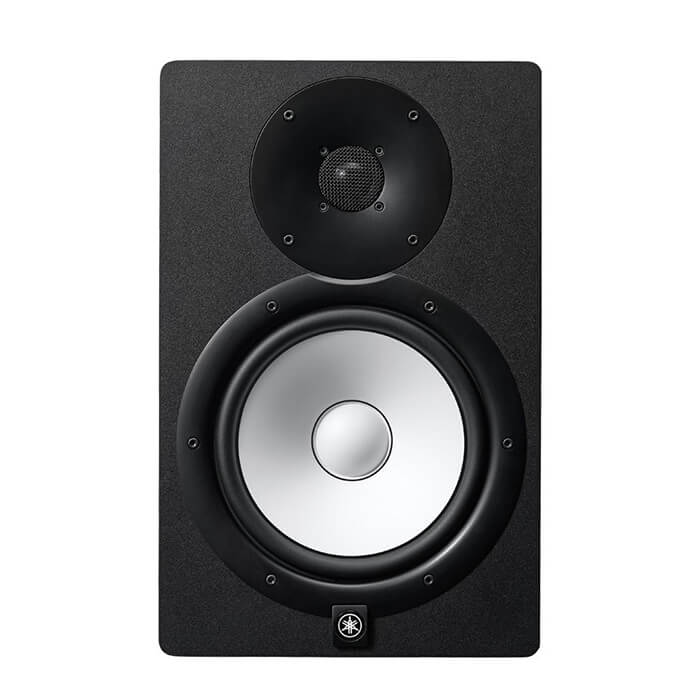
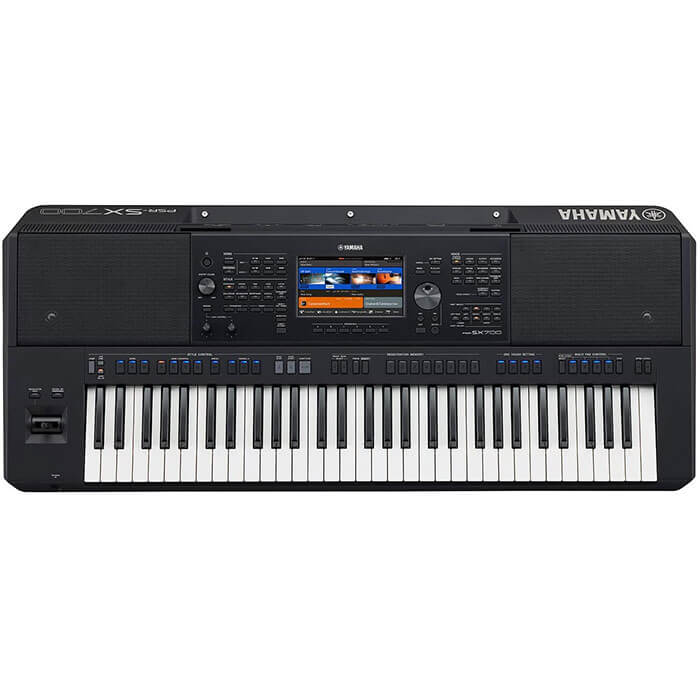
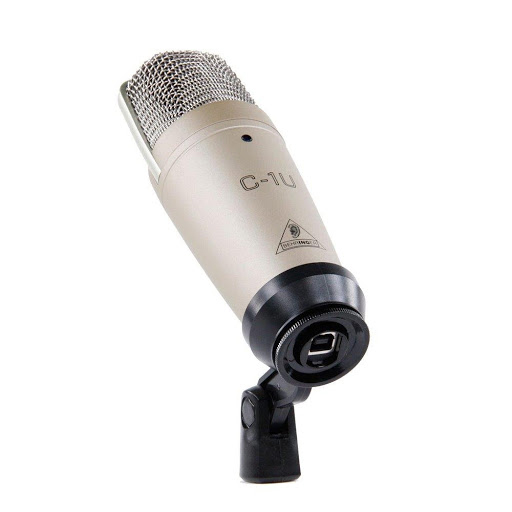
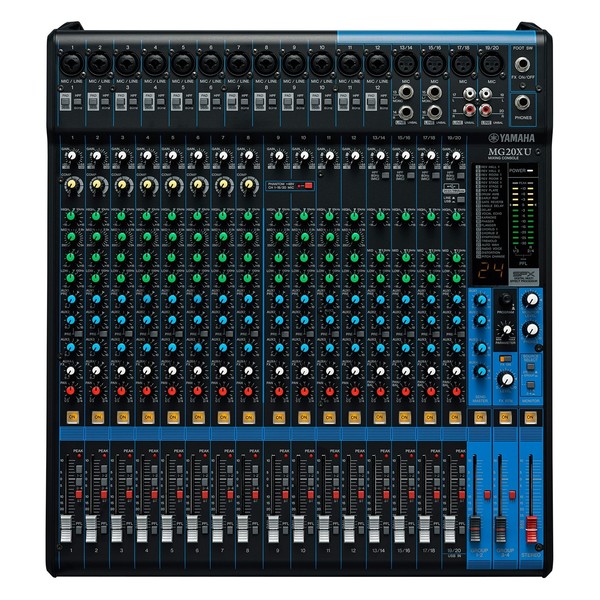
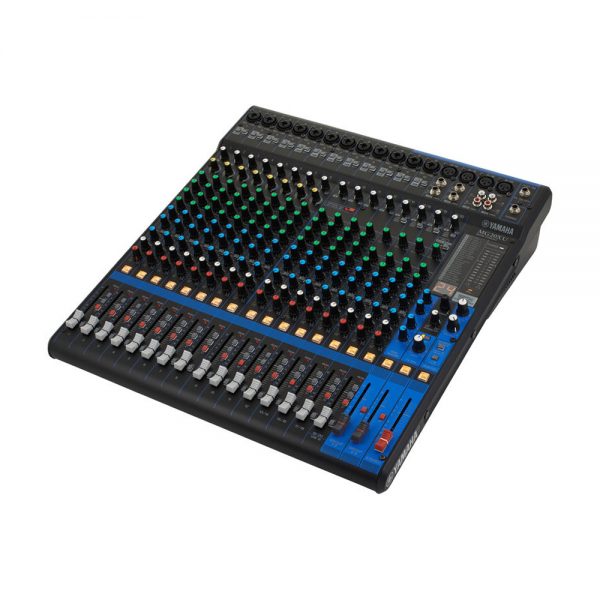
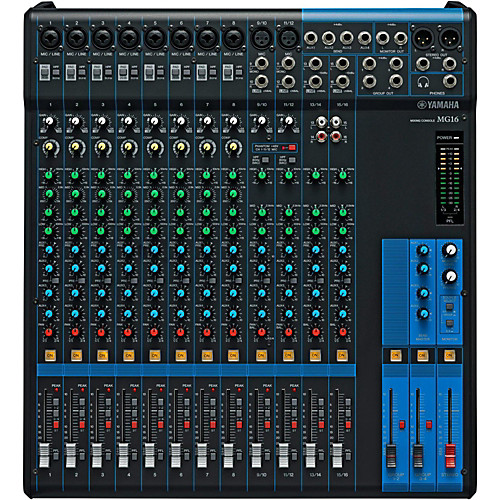
Reviews
There are no reviews yet.